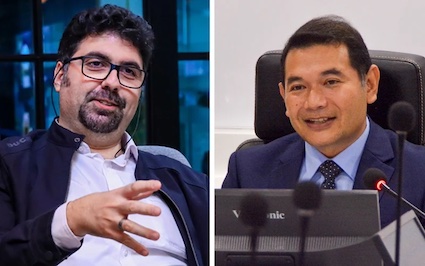Think tank takes Rafizi to task over inflation statements

(FMT) – The Center for Market Education (CME) has called out economic affairs minister Rafizi Ramli for his statements on inflation and consumer spending habits last week, stating that “this type of communication is not precise”.
At a press conference last week, Rafizi said consumers’ spending habit is the main driver of inflation. He said that according to economic theory, demand should decrease when prices increase, but that trend was not observed in Malaysia.
Rafizi said this was especially true in the foods and non-alcoholic beverages category, where demand has not decreased despite rising prices.
Quoting Austrian Nobel Prize-winning economist Friedrich August von Hayek, CME clarified that inflation’s “original and proper meaning is an excessive increase in the quantity of money, leading in turn to an increase in prices”.
“While we understand the aim of ‘shaking’ consumers with these statements, we also believe the ministry could send out strong messages without compromising on the accuracy of economic reasoning,” said CME’s CEO, Carmelo Ferlito, in a statement today.
“If the government wishes to be serious in tackling inflation, it should first be able to properly recognise its cause and to implement an adequate communication policy.
“Furthermore, if the government wants the people to be responsible with their finances, it should send a signal by being responsible with its own finances, which is made up of money collected from the people via taxation.”
Ferlito said Malaysia’s expansive fiscal and monetary policies announced in a bid to cushion the economic impact of the Covid-19 pandemic – RM305 billion (23% of GDP) in 2020 and RM225 billion (15% of GDP) in 2021 – are the “true root” of current inflationary issues.
To properly tackle inflation, he said, the government should gradually cut down its spending to reduce the quantity of money in circulation.
Ferlito also called for reforms to be introduced to reinstate the primacy of balanced budgets.
In response to the criticism he had faced, Rafizi said at his press conference last week his main message was the need to address supply and demand so that “a more elastic consumer demand” becomes a bigger factor in influencing the price of goods.
He said he was open to criticism, and that “intelligent” members of the public would understand his viewpoints when arguments were presented.

